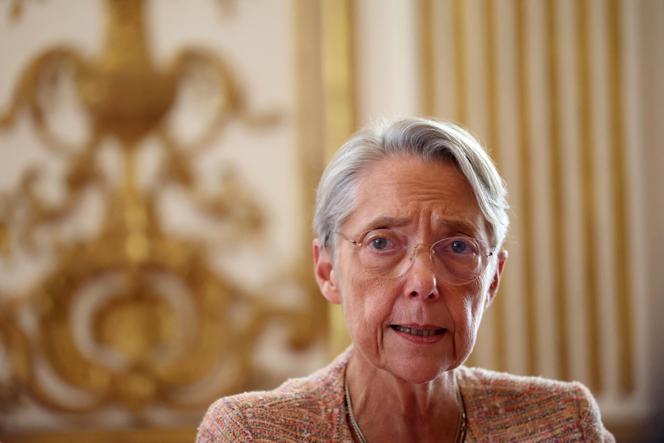


Summer is coming to an end without any answers. Speaking from her office on Thursday, September 21, French Prime Minister Elisabeth Borne demonstrated, yet again, that waiting has become a philosophy. It's been almost three months since the death of Nahel M., shot by a police officer during a traffic stop in Nanterre, west of Paris, on June 27. This event set the country ablaze, leading to the ransacking of police stations, schools and town halls. There was shock and astonishment. Still, to date, nothing has filtered through from the "profound and comprehensive response," promised by President Emmanuel Macron while meeting with his ministers on July 21.
"Along with the president, what we wanted to do on this subject was to take our time. We didn't want to get carried away with emotional, banal responses, because what happened is very difficult to understand," Borne explained to Le Monde. "I'm not one of those people who think that problems are simple and the answers simplistic." To keep out of low-level debates, Borne has tasked almost all ministers (city, interior, justice, education, sport, culture, environment) with drawing up proposals.
The fruits of this work were submitted to her on Thursday during a three-hour meeting at the PM's offices. This gathering brought together 14 members of the government and was described by Culture Minister Rima Abdul Malak as a constructive game of "ping-pong." Macron has not yet scheduled a speech to announce the paths that will be pursued. A deadline appears to be the October 9 meeting of the Interministerial Committee for Urban Affairs, which will bring together mayors affected by the riots and eager for concrete solutions.
After the summer's repressive criminal justice response, resulting in the arrest of some 3,500 people, the government is groping for the right balance between firmness and inclusivity. On November 14, 2005, then president Jacques Chirac struck this balance just over two weeks after the riots in Seine-Saint-Denis, sparked by the deaths of Zyed Benna and Bouna Traoré, two teenagers who were electrocuted while trying to escape the police. "Children and teenagers need values and guidance," said Chirac, noting a "profound malaise." "Parental authority is crucial. Families must assume their full responsibility. Those who refuse must be punished, as the law stipulates. On the other hand, those who are experiencing major difficulties must be actively supported," he stated in a televised address, announcing an "unprecedented financial commitment" to combat discrimination and improve living conditions in these working-class areas.
You have 55.66% of this article left to read. The rest is for subscribers only.
